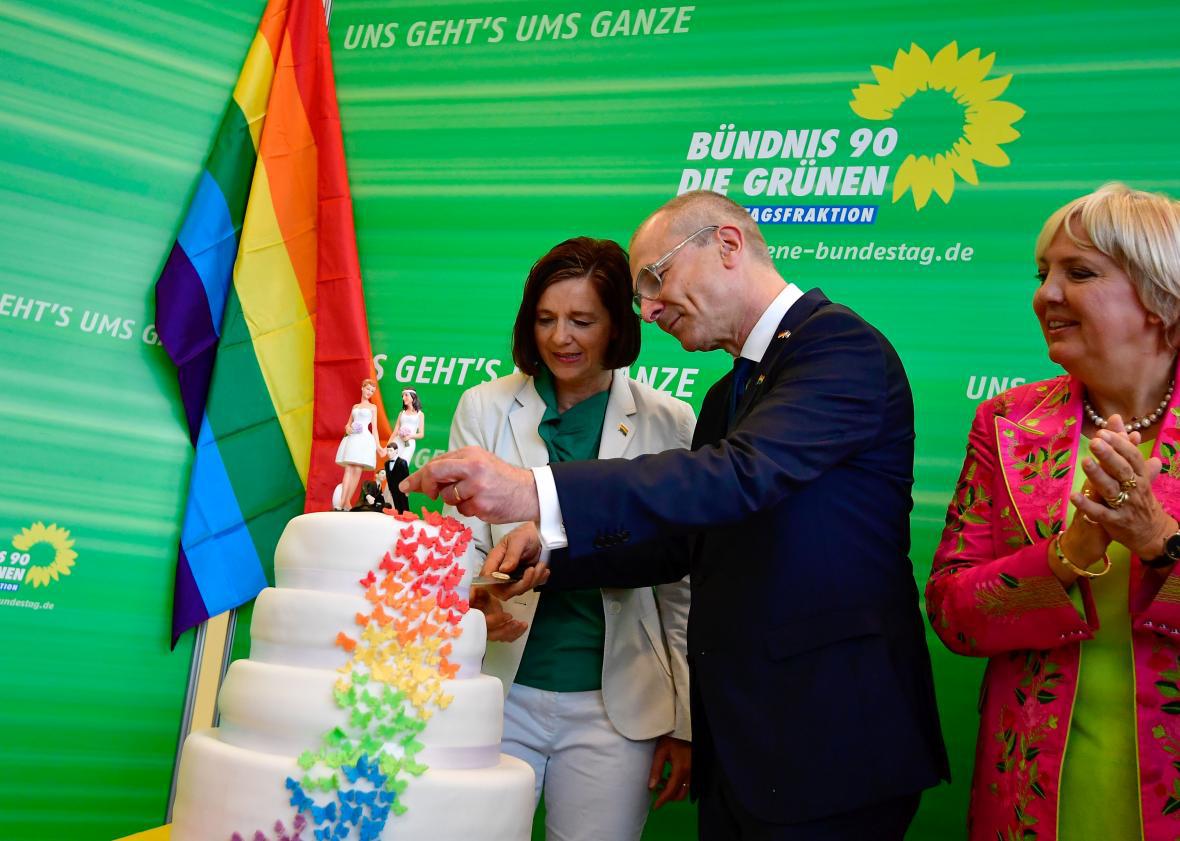On Friday morning, the German parliament approved amending the country’s laws to allow for same-sex marriage. The vote, in which 393 members voted in favor, while 226 voted against and 4 abstained, was in reponse to a proposal put forward by the Social Democratic party. Chancellor Angela Merkel, who had previously opposed the measure—and indeed still voted “no” herself—had, in a surprise pivot, told her Christian Democrat party to “follow their conscience” on Monday. And to the joy of German gays, lesbians, and bisexuals, as well as Pride revelers the world-over, they followed it to the right conclusion.
Merkel had long indicated that she had a “hard time” with same-sex marriage, particularly with regard to the raising of children. But apparently a recent dinner with a lesbian couple who care for eight foster children softened her view. According to the L.A. Times, Merkel signaled her shift at live event put on by Brigitte magazine on Monday:
“I had a life-changing experience in my home constituency,” Merkel explained during a question-and-answer session with the audience. She said she had been invited to dinner with a woman and her partner who were caring for eight foster children. She saw that the children were well cared for, and it dawned on her that her party’s arguments against same-sex marriage were no longer valid. “If the youth welfare service entrusts a lesbian couple with eight foster children, then the state could no longer use child welfare as an argument against adoptions,” she said.
As the BBC points out, Merkel also has political incentives for allowing the vote now, despite opposition within her own party. A recent poll found that 83 percent of Germans supported marriage equality, and with an election coming up in September, the change will take one campaign issue off the table: “The Greens, the far-left Linke, and the pro-business Free Democrats all back same-sex marriage,” explained the BBC. “In fact, they have refused to enter a future coalition deal unless reform is agreed on.”
Queer German families will likely care less about the motivations than the effect. Evelyne Paradis, executive director of ILGA-Europe, one of Europe’s major LGBTQ advocacy organizations, cheered the move in a statement on Friday: “After years of waiting and hoping, rainbow families in Germany will now receive equal recognition under the law,” she said. “This is a historic milestone that can inspire even more change for LGBTI people.” The move means that couples will now enjoy joint adoption rights, in addition to all the other rights tied to marriage.
Germany’s entry into the marriage equality fold follows on the heels of a major court decision in Taiwan in May ordering that country to amend its laws to allow for same-sex marriage within two years. Germans are expected to be able to wed as early as the end of 2017.
This post has been updated.
